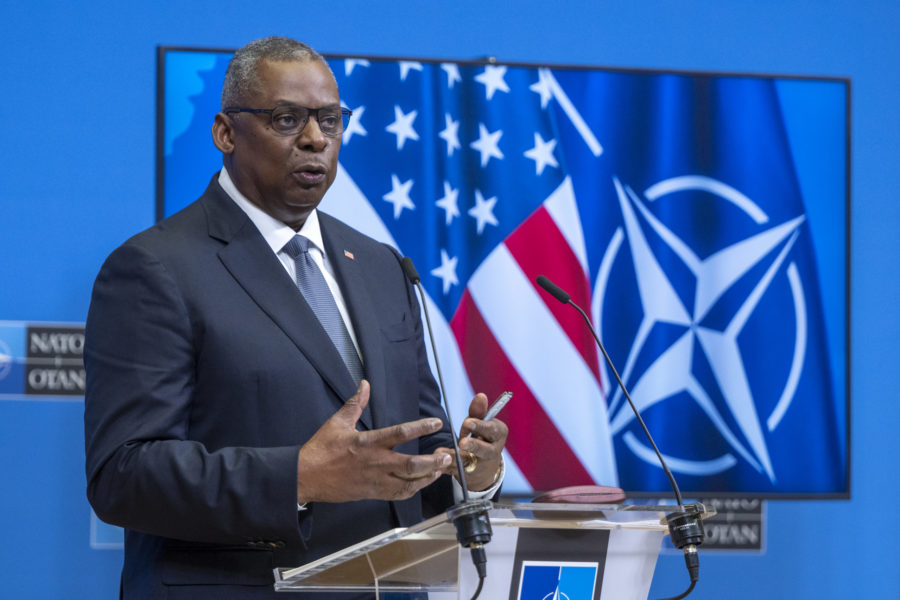The U.S. supports “a stronger and more capable” European defense, but that defense should not duplicate the functions and capabilities of the NATO alliance, Defense Secretary Lloyd J. Austin III said during an Oct. 22 press conference in Brussels.
Austin, speaking at his first in-person NATO Defense Ministerial, was responding to a question regarding recent efforts by some European Union members to expand the bloc’s military units with a rapid reaction force.
Germany, Finland, the Netherlands, Portugal, and Slovenia proposed the initiative, according to German broadcaster Deutsche Welle, which would include “space and cyber capabilities, along with special forces and air transport.” French President Emmanuel Macron has also backed the idea of a European army, according to the BBC.
While Austin demurred when asked what kind of capabilities he’d like to see the EU develop, he did say that “we certainly support a stronger and more capable European defense, and one that contributes positively to the trans-Atlantic and global security that’s compatible with NATO.”
Austin’s comments echo those made by President Joe Biden during a phone call with Macron last month—a joint statement issued afterward said that “the United States also recognizes the importance of a stronger and more capable European defense, that contributes positively to trans-Atlantic and global security, and is complementary to NATO.”
Both Austin and NATO Secretary General Jens Stoltenberg said Oct. 22 that the EU and NATO should ensure their capabilities work together, instead of duplicating each other.
“We’d like to see initiatives that are complementary to the types of things that NATO is doing,” Austin said. “So we see, hopefully, these two organizations working together to enhance security in the region and ensure that that trans-Atlantic bond remains strong.”
“What is needed are more capabilities, not new structures,” Stoltenberg said. “Our trans-Atlantic alliance remains the bedrock for our security.”
The EU and NATO share 21 common members, out of 27 and 30 total, respectively. Another four NATO members are currently candidate countries to join the EU. According to the Congressional Research Service, U.S. European Command has more than 70,000 personnel permanently stationed in the region.
Biden and Macron’s discussion of European defense last month was prompted by the AUKUS deal, with the U.S., U.K., and Australia agreeing to a pact highlighted by the sharing of nuclear submarine technology with Australia. That agreement was widely interpreted as an attempt to counter China in the Indo-Pacific but angered France, who had a previous deal with Australia for submarine tech.
Coming out of the Defense Ministerial, however, Austin said the U.S. and its NATO allies remain dedicated to contesting China’s influence.
“We’ve seen increasing interest in our allies and partners to ensure that they engage our partners in the Indo-Pacific and work with our partners to ensure that we collectively work to ensure that the Indo-Pacific area, or region, remains free and open, and the international rules-based order remains in place here,” Austin said.
While Austin and other top defense officials have continually stressed China as the U.S.’s pacing threat in recent months, Austin’s visits ahead of the Ministerial, to Georgia, Ukraine, and Romania were largely focused on the threat of Russia.
“I think what President Biden wants out of any kind of relationship with Russia is predictability and stability. And I think with nations like ours, I think that’s very, very important,” Austin said Oct. 22 in response to a question about Russian deterrence. “Again, we want to make sure that we continue to support our allies and partners in their desire to protect their sovereign territory and their desire to increase their resilience. So you’ll see us continue to do that. You’ll see us continue to work with our NATO allies and partners.”

